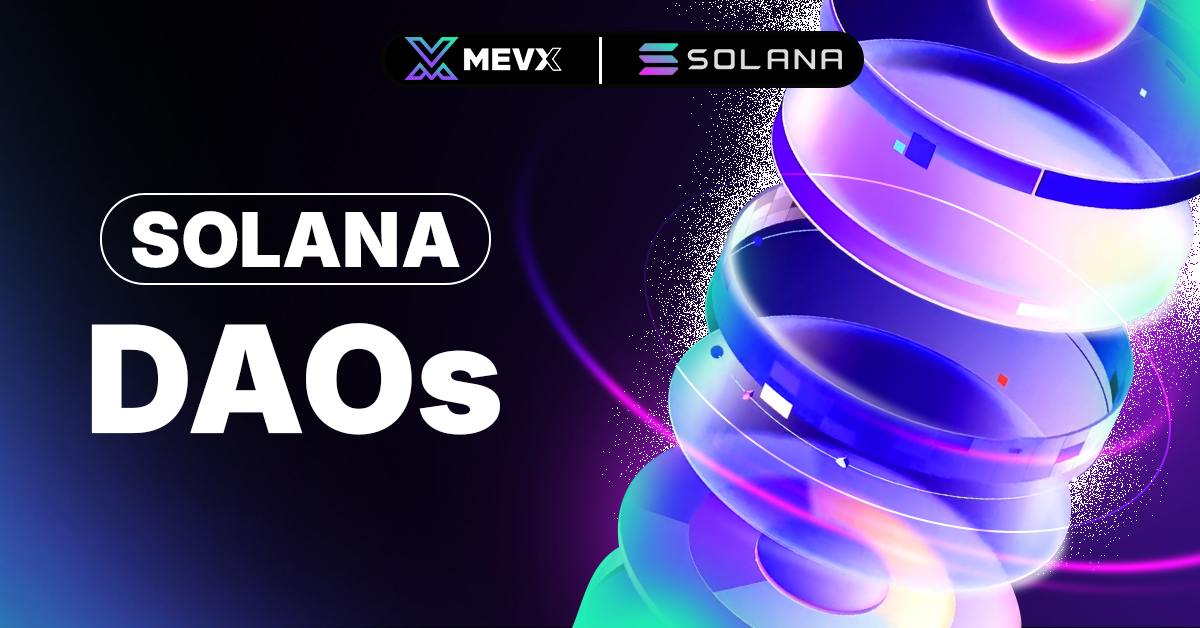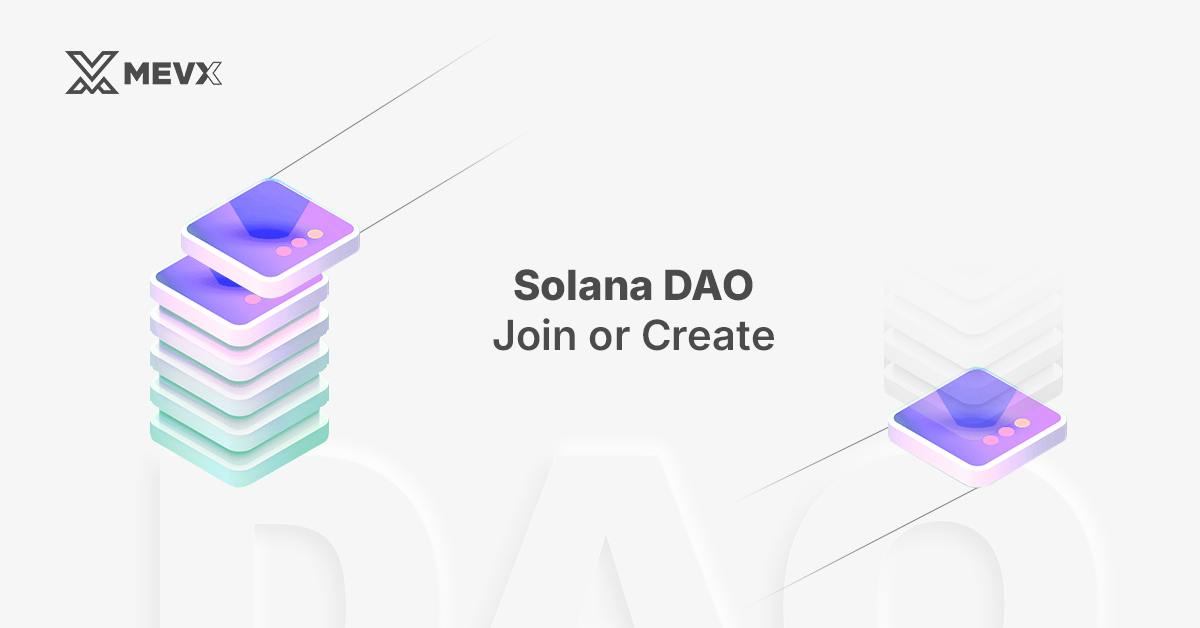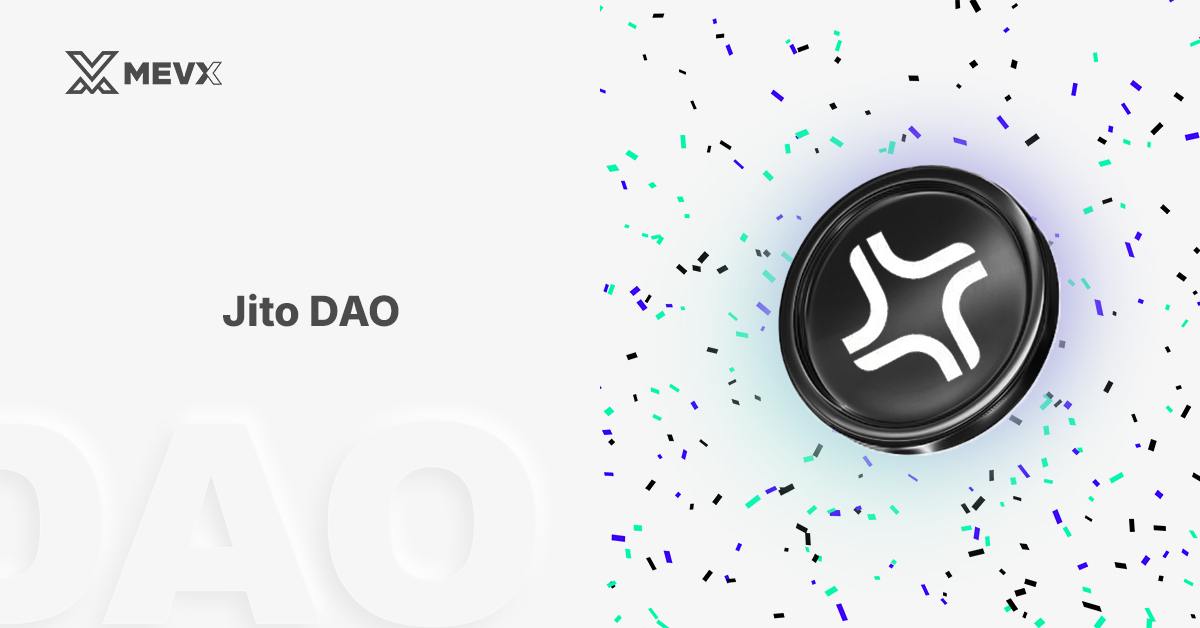Decentralized Autonomous Organizations, or DAOs, have gained significant attention within the cryptocurrency world for their community-focused structure and democratic approach to governance. For Solana users and newcomers to cryptocurrency, DAOs offer an exciting way to join the ecosystem. This guide will walk you through what DAOs are, why they’re important, how to join or create one on Solana, and some examples of DAOs to get you started.

Solana DAOs
What is a DAO and Why is It Important?
Defining DAOs
DAOs are decentralized autonomous organizations, fully and completely governed by their community members, with a flat hierarchy. DAOs rely on smart contracts, self-executing code on a blockchain to manage governance decisions and organizational rules, instead of depending on centralized control. Every member who has invested in a portion of the DAO has the right to make decisions; this is attained through governance tokens or any other voting mechanism.
Why DAOs Matter?
DAOs represent the forward structure of the organization in a more democratic future where the tradition of decisions made by a few at the top is merged to include the collective. Because it is so valuable, this decentralized approach ensures transparency and corruption is minimal since all the decisions and transactions are recorded on a blockchain.
DAOs are very popular on Solana due to the low transaction fees and high speed at which transactions on Solana are concluded, making the blockchain ideal for running and participating in DAOs with minimal costs.
How to Join or Create a Solana DAO
DAOs are designed to be open to all who would like to join, but here’s how you can join or create a Solana DAO.

Join or Create Solana DAO
Joining a Solana DAO
Most DAOs are built to be accessible and usually commence building at the community level using platforms such as Discord or Twitter. Here is how you can join one:
- Find a DAO: Look for Solana-based DAOs on sites such as DAO Central, Solana’s own forums, or even on platforms such as Twitter, where projects often advertise their DAOs.
- Join the Community: Most DAOs run their community discussions over Discord or Telegram. Joining these servers will let you communicate with the other members, ask questions, and get a feel for what the DAO does.
- Obtain Governance Tokens: Governance tokens grant the right to vote in the DAO and can usually be purchased from decentralized exchanges (DEXs) or sometimes awarded for contributing to the DAO’s activities.
- Participate in Governance: After joining, you can begin immediately with governance by voting on proposals or even proposing one yourself. Normally, voting is performed directly on the platform of the DAO itself, or with the use of governance tools that are connected to it.
Creating Your Own Solana DAO
Now, if you wanted to start your DAO, it would be pretty easy with the infrastructure of Solana. Here is a step-by-step process:
- Define Your DAO’s Mission: Clearly define why your DAO exists and what are its goals. Think of the reasons for creating it: whether to manage community funds, build a decentralized project, or support a cause.
- Choose a Governance Model: Select the model your DAO uses for decision-making. This can be a model ranging from direct democracy, where every member will vote on every decision, to representative models, where decisions are left to the people holding voting power.
- Set Up the DAO on a Platform: A platform such as Mango Markets or Serum by Solana will give you the infrastructure to do this. You’ll have to set up a smart contract that enforces rules and tracks governance activity.
- Distribute Governance Tokens: Create and distribute governance tokens through a token sale, or give the token to early adopters as an incentive. It is the token system that gives the right to vote and, therefore, gives decentralized control.
Understanding Governance Tokens and Voting Power
Governance tokens and voting power are essential to the functioning of any DAO.
What Are Governance Tokens?
Governance tokens are specially created unique digital tokens that embody voting power in a DAO. These can be thought of as shares in a company: the more shares you own, the greater your say in decisions regarding the organization. In the case of DAOs, governance tokens are used for voting on propositions or suggestions of changes that will set the future of an organization.
How Voting Power Works
Voting power itself may vary from one DAO to the next, but generally, the more tokens you have, the more powerful your vote will be. Let me illustrate the following:
- One Token, One Vote: Some DAOs assign one vote per token. Therefore, the more tokens held by a member, the greater the degree of their influence.
- Quadratic Voting: Others will incorporate quadratic voting processes to allow smaller holders of tokens a more potent voice and prevent large holders of tokens from running away with the vote.
Examples of Proposals and Voting Topics
DAO members might vote on topics like budgeting, partnerships, project developments, or even changes to the DAO’s mission. For example, a Solana DAO focused on environmental projects might vote on how funds are divided to go toward new sustainability endeavors.
Example of DAO on Solana
The DAOs are growing in the Solana ecosystem; thus, they harbor different missions and governance models. Each of them has its own way of working. Below is an example of Jito DAO to give you an idea:

Jito DAO
- Liquid Staking via JitoSOL: Jito DAO supports liquid staking through the JitoSOL token. When users stake Solana through Jito, they don’t only get regular staking rewards but also get to share in MEV (Maximal Extractable Value) yields. The Block Engine captures the MEV yields by ordering transactions in such a way as to maximize validator income. This holds quite well for Solana’s fast-paced blockchain, where profitability can be drastically changed with transaction ordering.
- Governance and Treasury Management: The governance model of the Jito DAO provides that owners of the JTO token are involved in decision-making. A governance structure allows community members to vote for proposals, inclusive of liquidity incentives and treasury allocations, so contributors may influence the direction of the protocol.
- MEV Yield Sharing: Rather than traditional staking, MEV yield sharing by Jito DAO is a way in which it segregates itself from the pack of many other DAOs. With this approach, the ability to capture additional value emanating from transaction ordering subsequently goes to stakeholders and provides special utility for participants of Jito’s liquid staking service.
- Operational Transparency: Community-driven decisions in Jito DAO include the latest considerations of treasury spending on liquidity incentives to remain competitive. In return, this earns them more community trust, which is a pre-condition for long-term growth within Solana’s ecosystem.
With an intense focus on Jito DAO’s unique value proposition in liquid staking, governance, and MEV yield sharing, this example will provide concrete insight into Solana DAOs and participate in joining other decentralized organizations.
Conclusion
DAOs are unique ways for users to directly participate in the future of cryptocurrency projects and the Solana ecosystem. On the back of Solana’s low fees and robust infrastructure, the ability is there to either join one of many current DAOs out there in search of people just like yourself or to create one to gather supporters for your new idea. As you participate, remember that community engagement lies at the core of everything that DAOS is about, so your participation counts.
For a beginner user, joining a DAO means hands-on experience in crypto governance. You will be exposed to decentralized systems, learn to work with governance tokens, and even vote on projects you believe in. So jump in, join, or create your Solana DAO today and become an active member of this exciting, decentralized future.
Share on Social Media:
